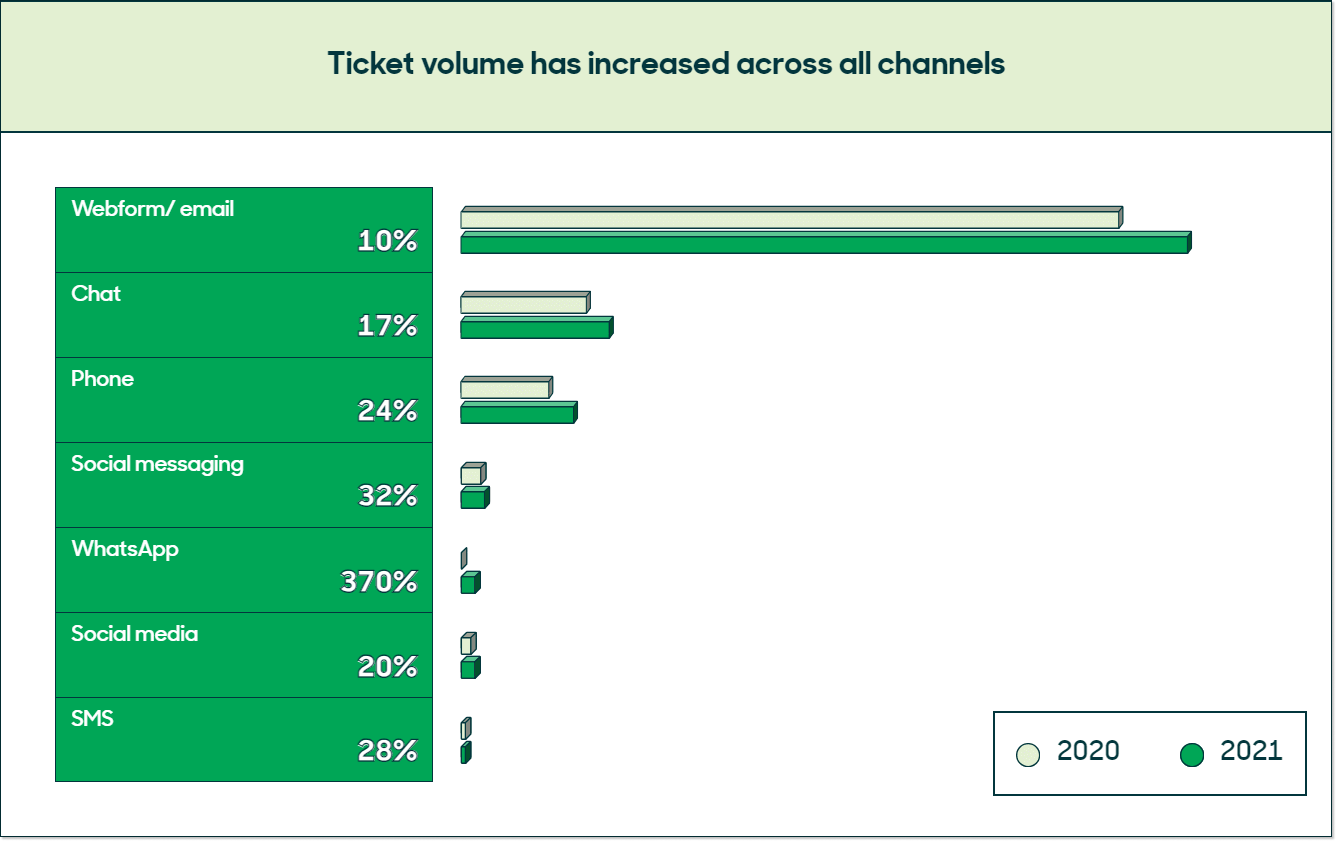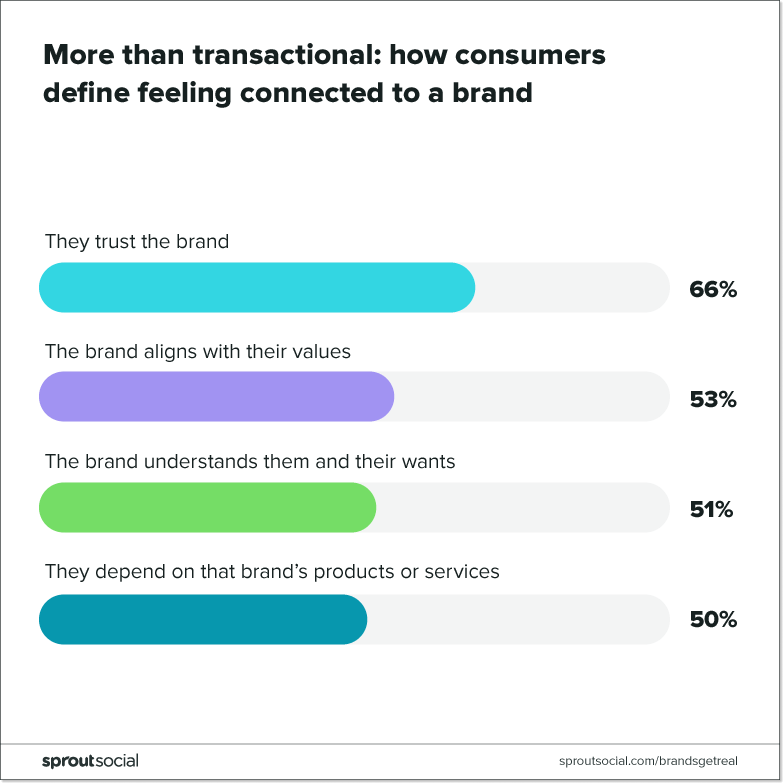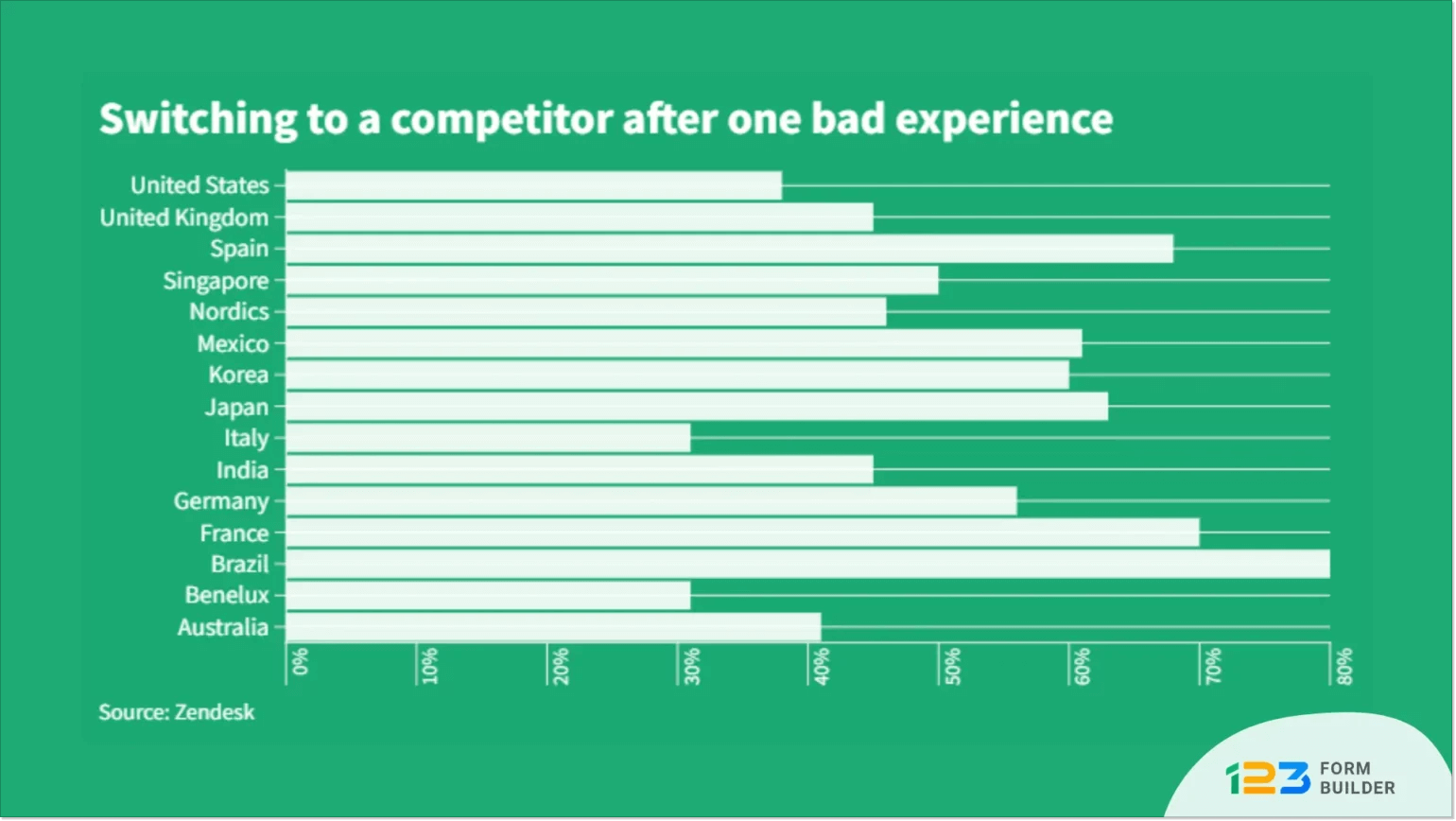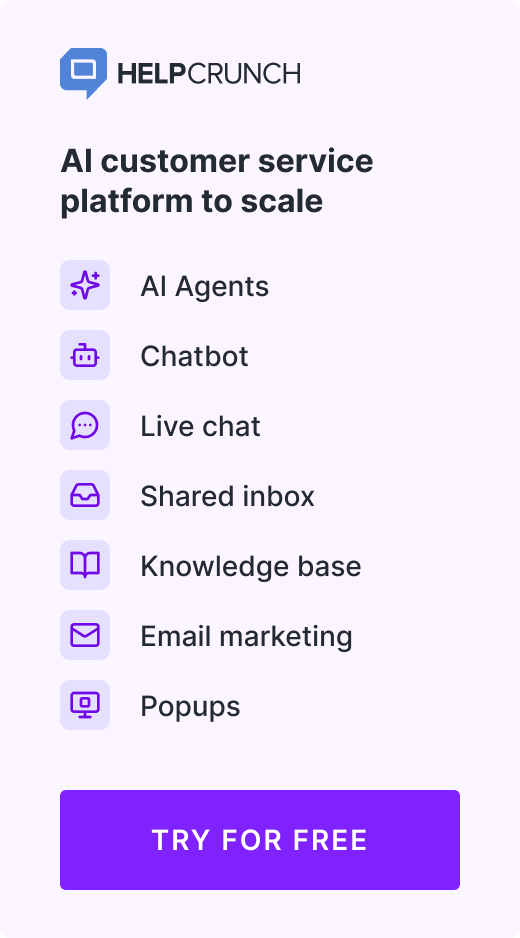The Pros and Cons of Customer Service Outsourcing
Uncover the benefits and drawbacks of customer service outsourcing – make informed decisions!
Written by Austin Guanzon

Providing great customer service is an essential part of running a successful business. Delivering friendly and knowledgeable customer care can improve customer satisfaction, encourage word-of-mouth promotion, and create loyal, returning customer base.
Unfortunately, as your business grows, it can be hard to keep up – especially with the huge range of communication channels available, from email to chatbots to social media and good old-fashioned telephone calls.
As demand increases, it can be easy to drop the ball, and it’s just as easy for angry customers to call out poor service publicly. But why is good customer service important? Well, according to PCW, 73% of consumers say customer experience impacts their buying decisions – meaning bad service can lead to a reduction in profits and a poor reputation.
So, what can you do about this? One option is customer service outsourcing. We’ll look at the pros and cons, but first, what exactly is it?
Definition of customer service outsourcing
If businesses don’t have the resources, time, or money to handle all methods of communication, they may consider outsourcing their customer support services. This is done by employing a third-party company, specializing in managing customer services and utilizing their resources instead of employing your own.
Typical customer support operations that can be outsourced include:
- Taking, logging, and making phone calls.
- Handling queries and complaints, solving problems, and re-routing complex queries.
- Processing sales orders, returns, and refunds.
- Upselling additional products.
- Evaluating complaints to spot trends and find solutions.
- Updating relevant systems and databases.
What’s more, third-party service providers have the resources to deal with fluctuations in demand.
Benefits of outsourcing customer services
The main benefit of outsourcing customer service operations is that you can utilize a fully trained team of specialists. Because this is the organization’s core offering, customer support training and development will be a priority rather than an afterthought or somebody’s additional role.
This means you can free up your own team for your core business and focus on marketing, design, and sales projects.
Dedicated customer service agencies generally have up-to-date technology, which can be costly for in-house operations. And, since third-party customer service companies focus solely on providing client services for businesses, the quality should be high, leading to a better standard of service for clients and higher customer retention.
Types of customer service teams
Customer care comes in a number of different forms, and the type of service you consider will depend largely on your needs. Let’s look at some common kinds of teams, both internal and external.
- In-house team. An in-house team is one you hire specifically. It’s a dedicated department trained by you and working within your business. That means they’ll have in-depth product training, familiarity with your business culture and ethos, and links to other departments.
- Internal team. This sounds similar, but we’re teasing out a slightly different dynamic here – another internal team whose role isn’t entirely customer-focused but who does deal with them sometimes. Think about a tech team that deals with complex questions or your sales team handling post-sales queries.
- External, dedicated team. Dedicated agents work solely for your business and nobody else – but they are separate from yours, so you aren’t responsible for their day-to-day running. This option is beneficial when you have complex specialist requirements but not enough staff. It allows you to focus on your core business functions, such as marketing, design, and sales while leaving contract labor management to the external team.
- Contact center services. Contact center services manage a whole range of communication channels – including calls, emails, and webchats. However, unlike a dedicated team, they may handle multiple businesses’ customer service at once. Help centers cover omnichannel communication such as email, webchat, and social media so customers can get in touch in their preferred way.
Pros of outsourcing
There are a number of advantages of outsourcing customer service for small business, including:
Cost-effectiveness
One of the biggest arguments for customer support outsourcing is the cost-saving potential. When you use a third-party company to operate your client service, you can pay for the work (e.g., an amount per call) or hours worked.
If you employ customer service agents, you have the costs of recruiting good people, relevant hardware and software, regular training to ensure call center agent efficiency, as well as salaries. Also holidays, sick days, insurance, and other costs are involved with employing a team to manage customer services.
Finding the right company with a flexible pricing plan means that even smaller businesses can benefit from outsourcing their customer service.
Increased scalability and flexibility
One huge benefit of outsourcing customer service is that it’s scalable. As your business grows or hits peak times of the year, such as Christmas and Black Friday, demand on customer service departments can increase. Your outsourcing partner can cope with fluctuations by adding team members where necessary.
Increasingly, customers want to be able to contact businesses outside of usual business hours, too. Plus, businesses operating on a global scale will have no choice but to offer customer care 27/7. Outsourcing your customer service can give you the opportunity to offer cost-efficient, round-the-clock customer care – and even local language options in a variety of countries.
Improved quality of service
Customers will be more satisfied if they can access quality support with reduced wait times, higher first-call resolution rates, or even bilingual employees. Having access to dedicated, specifically trained staff can make a huge difference to the customer experience, and, as many customer service blogs will tell you, improved service means improved profits.
Additionally, outsourcing companies often employ behavior-tracking tools and analytics to better understand customer preferences and trends, allowing for tailored interactions and continuous service improvement. Improved service quality can significantly enhance customer loyalty and satisfaction.
Enhanced productivity and efficiency
Smaller businesses, in particular, tend to employ staff who wear many hats – for instance, handling marketing, sales, and dealing with customer queries. Outsourcing customer services can improve productivity by freeing up staff to focus on areas of the business that can drive revenue and growth.
Imagine your marketing team is simultaneously trying to launch a new ad campaign, update the website, and pick up the phones in a timely manner for your customers. They might miss something important, such as handling what to do when marketing emails fail or uploading an outdated press release. Removing the need to deal directly with customers gives them more time to focus on what they’re best at.
Improved technology solutions
The technology required to run an excellent customer service department can be costly, and it requires training and ongoing maintenance. For a smaller or start-up company, investing enough to provide a good service can be unfeasible.
With customers expecting to be able to use a range of communication channels such as email, chat assistants, social media, WhatsApp, and SMS, in addition to telephone calls, you can’t let technology slide to save money. Outsourcing will give you access to a third-party provider who’ll have invested in the right hardware and software already.
Cons of outsourcing
As with most things, there can be challenges. Some of the main ones to be aware of are:
Quality control
As with any form of outsourcing, quality assurance is a big factor. The way customers interact with companies has changed and evolved over the years. We live in a world of high competition, and customers will vote with their feet if such standards are not met.
When you outsource your customer service, you are putting trust and faith into a third-party provider. It’s important to ensure their vision aligns with yours.
Requesting and reviewing call transcripts can be a good way to monitor the quality. However, many outsourcing companies will have tools to help – so ask for some examples of AI in customer service to check they’re not using cheap, flow-chart style chatbots and are using appropriately high-level technology.
Security concerns
Most countries have rigid data protection laws, and since outsourcing customer service means outsourcing your data, it’s right to be concerned. You may need to install a remote desktop for the onboarding process or allow them access to certain internal databases, meaning there are multiple layers of security to review.
While most customer service outsourcing companies will be happy to offer insurance and a signed agreement that limits your liability, your company will take the blame if there is a data breach. Because of this, it’s vital to ensure any third-party companies have stringent security protocols and meet the requirements of any countries you operate in.
Reduced customer satisfaction
A major concern for businesses considering customer service outsourcing is the risk to relationships they’ve worked hard to build. There could be a shift in the communication style felt by long-term customers, and it may not be well-received.
This can be overcome by handing over scripts, communication guidelines, and company standards to help maintain your brand ethos. Satisfaction surveys can also help you monitor how well the customer support team performs.
Call center agent apathy
Because outsourced teams are not a part of your brand, they may lack your employees’ loyalty. This can lead to indifference when dealing with customers. Add to that the fact they may be dealing with multiple businesses and a huge volume of inbound calls, and you can see how apathy can creep in.
This is why it’s essential to provide scripts and training and have an agreed set of expectations as part of the deal. Requesting a trial period can also allow you to test those customer support agents before you commit to a contracted term.
Final thoughts
Outsourcing customer services can prove a wise move for many businesses as long as you do your research and find the right company to partner with. Identifying and comparing your needs to the services on offer is essential to ensure the service is right for you.
FAQs
How do I find the right customer service provider?
Finding the right outsourcing partner can depend on a number of factors. Here are some considerations to take into account when looking for the best customer service agency for you.
- Location. Do you want a team to manage the country you’re based in or to cover areas where you don’t have local teams? Consider if it would be beneficial to enlist the help of a business that understands the local market, whether countrywide, regional, or city-based.
- Experience and expertise. Are any of their other clients operating in a similar market to you? Is that a conflict of interest or a bonus due to their experience? Make sure to check how they maintain training and quality, and so on.
- Have clear expectations. You need to know exactly what you need and how it compares to the services offered.
- The onboarding process. How involved do you want to be? Will they let you provide product training? You need to know exactly how the company will gain an understanding of your business to be able to deliver a service that doesn’t impact customer relations.
- Security. They should be able to meet any laws and regulations in the areas you operate, and your data should be protected to the highest standards.
Why does outsourcing save time?
Firstly, there is no need to train or recruit staff as this falls in the remit of the outsourcing company. Secondly, customer service outsourcing companies only focus on that specific area. This means they are highly trained and have the right technology to be efficient at what they do.
It also helps businesses save time internally as staff are not pulled away from other duties to perform customer service tasks.
What is the difference between outsourcing and BPO?
BPO (business processing outsourcing) is generally the outsourcing of more specific services that are repetitive, non-core elements of the business, for example, payroll, HR, or accounting. Outsourcing is a broader concept where a third-party company takes over running a department or service within a company, such as customer service.
Is outsourcing good or bad?
As with anything, this is subjective. Whether outsourcing is right for you depends on the current systems you have in place and how effective they are. If you have a department that isn’t performing well or struggling to meet demand, outsourcing could greatly benefit your business.
Of course, you also have to consider the effectiveness of the outsourcing company you choose to work with. It’s definitely worth taking time to find a company that provides a high standard of service that’s right for you.









